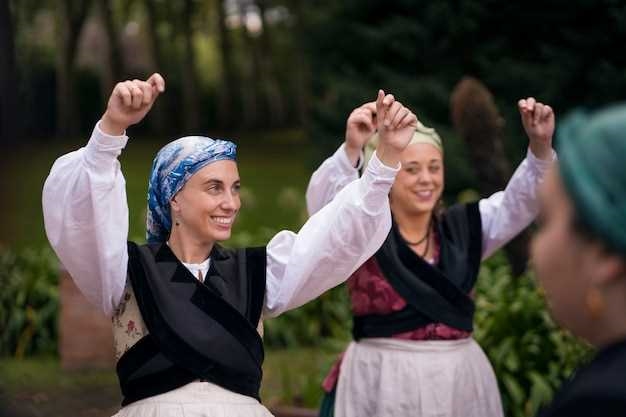
In a world that is constantly evolving and embracing modernity, it becomes imperative to recognize and cherish the cultural heritage that has shaped our identities and societies. Cambodia, a nation steeped in history and tradition, boasts a vibrant and diverse cultural tapestry that is as awe-inspiring as it is fragile. Preserving and promoting the essence of Cambodian culture is not just a matter of pride, but a responsibility that we owe to future generations.
At the heart of Cambodian culture lies a treasure trove of customs, rituals, and artistic expressions that have been passed down through generations. These cultural elements serve as a testament to the resilience and creativity of the Cambodian people, reflecting their values, beliefs, and unique way of life. From the intricate carvings of Angkor Wat to the graceful movements of traditional dance, each aspect of Cambodian culture holds a story waiting to be told.
However, the significance of cultural education and preservation extends beyond mere storytelling. It is through the understanding and appreciation of our cultural heritage that we gain a deeper understanding of ourselves and our place in the world. Cultural education fosters a sense of identity and belonging, instilling pride and a desire to protect and nurture our heritage. By preserving our cultural legacy, we ensure that future generations have the opportunity to connect with their roots and embrace the richness of their heritage.
Moreover, cultural preservation serves as a bridge between the past, present, and future. It allows us to honor the achievements and contributions of our ancestors while also inspiring innovation and creativity in the present. By studying and preserving the traditional arts, crafts, and practices of Cambodia, we create a platform for cultural exchange and dialogue, fostering a deeper appreciation for diversity and promoting intercultural understanding.
As we navigate the complexities of the modern world, it is crucial to recognize that cultural education and preservation are not static endeavors. They require active engagement, adaptability, and a commitment to inclusivity. By embracing new technologies and approaches, we can ensure that the essence of Cambodian culture remains relevant and accessible to all, transcending geographical boundaries and reaching a global audience.
Ultimately, the preservation of Cambodian culture and heritage is a collective responsibility that requires the collaboration and dedication of individuals, communities, and institutions. By investing in cultural education and preservation, we not only safeguard the legacy of the past but also pave the way for a vibrant and culturally enriched future.
Understanding the Importance of Cultural Education
Cultural education plays a vital role in preserving and safeguarding the rich heritage and traditions of a society. It serves as a means to transmit knowledge, values, and practices from one generation to another, ensuring the continuity and evolution of a culture. By fostering an understanding and appreciation of cultural diversity, cultural education promotes social cohesion and mutual respect among individuals and communities.
Through cultural education, individuals gain insights into the historical, social, and artistic aspects of a culture, allowing them to develop a deeper connection and sense of belonging to their heritage. It provides a platform for exploring and celebrating the unique customs, rituals, and expressions that define a particular culture, fostering a sense of pride and identity among its members.
Moreover, cultural education encourages creativity and innovation by exposing individuals to different perspectives and ways of thinking. It broadens their horizons, enabling them to embrace diversity and embrace new ideas, ultimately contributing to the enrichment and advancement of society as a whole.
Furthermore, cultural education plays a crucial role in preserving intangible cultural heritage, such as oral traditions, performing arts, and traditional craftsmanship. By imparting knowledge and skills related to these practices, cultural education ensures their continuity and prevents their loss over time. It empowers individuals to become custodians of their cultural heritage, passing down their knowledge and expertise to future generations.
In conclusion, cultural education is essential for the preservation and promotion of a society’s cultural heritage. It fosters understanding, appreciation, and respect for diverse cultures, while also nurturing creativity and innovation. By transmitting knowledge and skills related to cultural practices, it ensures the continuity and safeguarding of intangible cultural heritage. Therefore, investing in cultural education is crucial for the preservation and enrichment of our collective human heritage.
The Role of Cultural Education in Preserving Cambodian Heritage

Cultural education plays a vital role in safeguarding and upholding the rich and diverse heritage of Cambodia. By imparting knowledge and understanding of the country’s traditions, customs, and artistic expressions, cultural education serves as a bridge between the past and the present, ensuring the preservation of Cambodian heritage for future generations.
Preserving Traditional Practices
One of the key aspects of cultural education is the preservation of traditional practices. Through cultural education programs, individuals are exposed to the customs and rituals that have been passed down through generations. This includes traditional ceremonies, dances, music, and crafts, which are essential elements of Cambodian heritage. By learning and participating in these practices, individuals develop a deep appreciation for their cultural roots and contribute to the continuity of these traditions.
Fostering Cultural Identity
Cultural education also plays a crucial role in fostering a sense of cultural identity among Cambodians. By learning about their heritage, individuals gain a better understanding of their place in society and develop a stronger connection to their roots. This knowledge helps to shape their identity and provides a sense of belonging and pride. Cultural education empowers individuals to embrace and celebrate their unique cultural heritage, contributing to the preservation and promotion of Cambodian identity.
In conclusion, cultural education serves as a powerful tool in preserving Cambodian heritage. By preserving traditional practices and fostering cultural identity, cultural education ensures that the rich and diverse heritage of Cambodia continues to thrive and be passed on to future generations. It is through the efforts of cultural education that the significance and beauty of Cambodian heritage can be fully appreciated and cherished.
Challenges in Safeguarding the Richness of Cambodian Cultural Legacy
Preserving the invaluable heritage of Cambodia poses numerous obstacles that demand careful attention and proactive measures. The task of safeguarding the diverse and profound cultural legacy of this Southeast Asian nation requires a comprehensive understanding of the challenges at hand.
One of the primary hurdles lies in the ever-evolving nature of society, which often leads to the erosion of traditional practices and values. The rapid pace of modernization, globalization, and technological advancements can inadvertently overshadow the importance of preserving cultural traditions. Additionally, the younger generation’s increasing exposure to external influences and the allure of Western culture can lead to a disconnection from their own heritage.
Another significant challenge is the impact of historical events and conflicts that have left lasting scars on Cambodia’s cultural landscape. The devastating Khmer Rouge regime, for instance, resulted in the loss of countless cultural artifacts, the destruction of sacred sites, and the suppression of traditional practices. The process of rebuilding and recovering from such traumatic experiences requires immense dedication and resources.
Furthermore, the lack of awareness and appreciation for the value of cultural heritage among both locals and international communities poses a significant challenge. Without a collective understanding of the importance of preserving Cambodian culture, efforts to safeguard it may be undermined or overlooked. Education and awareness campaigns play a crucial role in addressing this challenge and fostering a sense of pride and responsibility towards cultural preservation.
Lastly, the issue of limited resources and funding presents a practical challenge in preserving Cambodian culture and heritage. The maintenance and restoration of historical sites, the conservation of ancient artifacts, and the documentation of intangible cultural practices require substantial financial support. Securing sustainable funding and allocating resources effectively are essential for the long-term preservation of Cambodia’s cultural legacy.
In conclusion, the challenges in safeguarding Cambodian culture and heritage are multifaceted and require a comprehensive approach. By addressing the impact of societal changes, historical events, lack of awareness, and limited resources, it is possible to overcome these obstacles and ensure the preservation of this rich and diverse cultural legacy for future generations.
Strategies for Cultural Conservation and Instruction
In this section, we will explore various approaches and methods that can be employed to safeguard and transmit the rich cultural heritage of Cambodia. These strategies aim to ensure the long-term preservation and dissemination of the country’s diverse traditions, customs, and artistic expressions.
- Documentation and Archiving: One crucial strategy involves the systematic documentation and archiving of cultural artifacts, historical records, and oral traditions. By creating comprehensive databases and repositories, valuable information can be preserved for future generations.
- Community Engagement: Engaging local communities is vital for the successful preservation of Cambodian culture. Encouraging active participation and collaboration fosters a sense of ownership and pride in cultural heritage, leading to its protection and transmission.
- Education and Awareness: Promoting cultural education and raising awareness among the younger generation is essential for the continuity of Cambodian traditions. Integrating cultural topics into school curricula and organizing educational programs can instill a sense of appreciation and understanding.
- Capacity Building: Building the capacity of individuals and organizations involved in cultural preservation is crucial. Providing training, resources, and support enables them to effectively carry out conservation efforts and pass on their knowledge to others.
- Partnerships and Collaboration: Collaborating with international organizations, academic institutions, and other countries can enhance cultural preservation efforts. Sharing expertise, resources, and best practices can contribute to a more comprehensive and sustainable approach.
- Technology and Innovation: Embracing technological advancements can aid in the conservation and promotion of Cambodian culture. Utilizing digital platforms, virtual reality, and interactive exhibits can make cultural heritage more accessible and engaging.
By implementing these strategies, Cambodia can safeguard its unique cultural heritage and ensure its transmission to future generations. Preserving and promoting the diverse traditions and artistic expressions of the country contributes to its identity, pride, and overall societal well-being.
Collaborative Efforts in Preserving Cambodian Culture and Heritage
In the pursuit of safeguarding the rich cultural legacy and historical treasures of Cambodia, it is imperative to emphasize the importance of collective endeavors. By fostering collaboration and cooperation among various stakeholders, the preservation of Cambodian culture and heritage can be effectively achieved. This section explores the significance of collaborative efforts in ensuring the longevity and vitality of Cambodia’s cultural identity.
Strengthening Partnerships
One of the key aspects of preserving Cambodian culture and heritage lies in establishing strong partnerships between governmental bodies, non-profit organizations, educational institutions, and local communities. These collaborations enable the pooling of resources, expertise, and knowledge, creating a unified front in the face of challenges. By working together, stakeholders can develop comprehensive strategies and initiatives that address the multifaceted aspects of cultural preservation.
Engaging the Community
Active community involvement is crucial in the preservation of Cambodian culture and heritage. Engaging local communities empowers individuals to take ownership of their cultural heritage, fostering a sense of pride and responsibility. Through community-driven initiatives, such as cultural festivals, workshops, and educational programs, the transmission of traditional knowledge and practices can be ensured. Moreover, involving the community in decision-making processes regarding cultural preservation enhances the sustainability and relevance of these efforts.
In conclusion, collaborative efforts play a pivotal role in the preservation of Cambodian culture and heritage. By strengthening partnerships and engaging the community, the collective commitment to safeguarding this invaluable legacy can be realized. Through these collaborative endeavors, the cultural identity of Cambodia can thrive and continue to inspire future generations.
The Impact of Cultural Education on Cambodian Society and Identity
Cultural education plays a crucial role in shaping the society and identity of Cambodia. By imparting knowledge about the rich history, traditions, and customs of the country, cultural education fosters a sense of pride and belonging among the Cambodian people. It serves as a powerful tool for preserving and promoting the unique cultural heritage of Cambodia, ensuring its continuity for future generations.
Fostering Cultural Awareness and Appreciation
Through cultural education, individuals gain a deeper understanding of the diverse aspects of Cambodian society. They learn about the significance of traditional practices, such as dance, music, and art, which are integral to the country’s cultural identity. By appreciating and participating in these cultural activities, individuals develop a sense of belonging and pride in their heritage.
Preserving Cultural Traditions and Values
Cultural education plays a vital role in preserving the traditional values and customs that have been passed down through generations in Cambodia. It teaches individuals the importance of respecting and upholding these traditions, ensuring their continuity in the face of modernization and globalization. By instilling a sense of cultural pride and identity, cultural education helps safeguard the unique heritage of Cambodia.
- Enhancing Social Cohesion and Unity
- Cultural education brings people from different backgrounds together, fostering social cohesion and unity. By learning about each other’s traditions and customs, individuals develop a greater appreciation for diversity and respect for one another. This promotes a harmonious society where people from various cultural backgrounds can coexist peacefully.
- Empowering Future Generations
- By providing cultural education to the younger generation, Cambodia ensures the preservation and continuation of its cultural heritage. It equips young individuals with the knowledge and skills necessary to become custodians of their cultural traditions. This empowers them to actively participate in cultural activities, pass on their knowledge to future generations, and contribute to the overall preservation of Cambodian culture and identity.
In conclusion, cultural education has a profound impact on Cambodian society and identity. It fosters cultural awareness, preserves traditions and values, enhances social cohesion, and empowers future generations. By recognizing the significance of cultural education, Cambodia can ensure the preservation and promotion of its unique cultural heritage for years to come.



